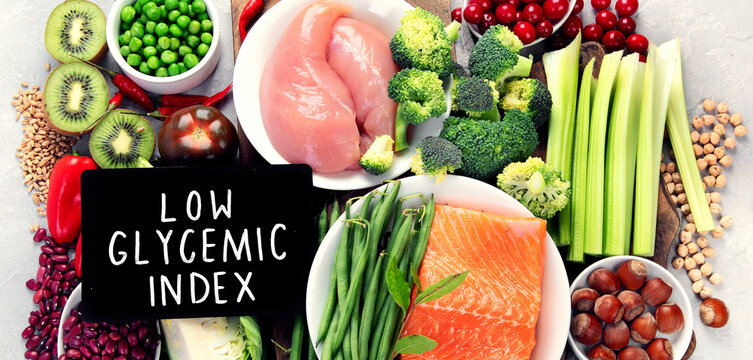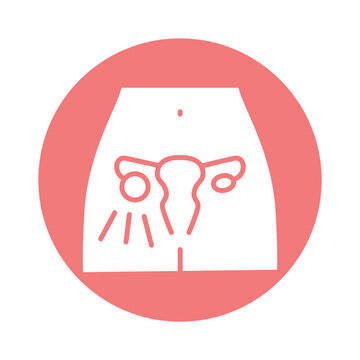Hormone Disorder Known As PCOS

Polycystic Ovary Syndrome (PCOS) is a complex hormonal disorder that affects millions of women worldwide. Although there is currently no cure for PCOS, dietary and lifestyle adjustments can significantly help in managing many of the symptoms.
While it may not be possible to completely reverse your PCOS, there are several factors to consider that could help alleviate the severity of your symptoms and prevent the condition from worsening. Some anecdotal reports from women suggest that they have managed to reverse their condition completely, but much more scientific research is required to substantiate these claims.
Diet
The Importance of Blood Sugar Control
Women with PCOS are often insulin-resistant, which can exacerbate hormonal imbalances and worsen symptoms. To combat this, focus on:
· Whole, unprocessed foods like vegetables, fruits, and whole grains
· Healthy fats like cold-pressed olive oil, avocados, nuts, and seeds
· Lean protein sources like poultry, fish, and legumes
· Low-glycemic index foods that won’t spike blood sugar

Hormone-Balancing Foods
Certain foods have a direct impact on hormone production and balance. Include these in your diet:
· Omega-3 rich foods like salmon and flaxseeds to reduce inflammation (consider supplementing here too)
· Antioxidant-rich foods like berries and leafy greens to combat oxidative stress
· Probiotic-rich foods like yogurt and kimchi to support gut health
· Healthy fats like olive oil and coconut oil to support healthy hormone regulation
Foods to Avoid
Some foods can trigger inflammation, worsen insulin resistance, and exacerbate PCOS symptoms. Limit or avoid:
· Ultra-processed and processed and packaged foods
· Refined sugars and grains
· Saturated and trans fats
· Soy and dairy products (if sensitive)
Every woman with PCOS is unique, and what works for one person may not work for another. Consider:
· Consulting with a healthcare professional or registered dietitian for personalized guidance
· Keeping a food diary to track symptoms and identify trigger foods
· Exploring different diets like keto, paleo, or vegan to find what works best for you
· Consider plant-based keto, a double punch in the anti-inflammatory/hormone-balancing arena
Lifestyle Changes
The Power of Stress Reduction
Chronic stress can wreak absolute havoc on our health and it can greatly exacerbate PCOS symptoms and disrupts hormonal balance. If you’re combating PCOS, one of your top priorities needs to be finding healthy, regular ways to destress. And this doesn’t need to be expensive. The following are tried and true, evidence-based methods to reduce stress that you can participate in daily in as little as 10 minutes for $0 dollars.
· Yoga
· Breathwork
· Meditation
· Pilates
· Walking and other gentle exercise
Exercise for Hormonal Balance
Regular physical activity can improve insulin sensitivity, boost mood, and promote hormonal balance. Aim for:
· At least 2 or 3 hours of moderate-intensity exercise per week
· Regular strength training
· Finding activities that bring joy and make exercise feel less like a chore. Consider things you loved doing as a child for an extra destressing effect like:
· Dance
· Swimming
· Classes with friends
· Exercise outdoors
Sleep and Circadian Rhythm
Poor sleep quality and disrupted circadian rhythms can worsen PCOS symptoms. Prioritize:
· 7-10 hours of quality of sleep per night.
· Establishing a consistent sleep schedule
· Creating a relaxing bedtime routine
· Put the phone away at least an hour before bed
· Turn the lights down as the sun sets (warm, smaller lights ok)
· Find rituals you love that will tell your body its time for bed like making warm herbal tea, playing soothing music, or reading a book
· Avoid screens altogether after work
Environmental Toxin Avoidance
Exposure to environmental toxins like endocrine disruptors can trigger PCOS symptoms. Take steps to:
· Use non toxic household cleaners (these don’t have to be expensive–vinegar and baking soda go a long way!)
· Use non-toxic personal care items and keep your routine simple
· Avoid plastics and opt for glass or stainless steel instead
· Choose organic produce when possible
· Filter water and air to reduce toxin exposure
· Don’t stress about controlling every small detail in life (that can make things worse). Instead, focus on what you can control in your home, that will make the biggest difference!
Mindful Movement and Self-Care
Nurturing your mental and emotional well-being is crucial for PCOS management. Make time for:
· Activities that bring joy and relaxation (see joyful exercise section above)
· Connecting with loved ones and building a support network
· Practicing self-compassion and self-care
· Engaging in creative pursuits or hobbies.
Working with a Healthcare Team
Collaborate with a healthcare provider who understands the complexity of PCOS to develop a personalized lifestyle plan that addresses your unique needs and health goals.

Consider:
· Regular check-ins to monitor progress and adjust the plan as needed
· Seeking guidance from a functional provider for expert help
· Exploring alternative therapies like acupuncture or herbal supplements
Vitamins + Herbs

The power of alternative therapies, namely plant-based drugs, is extremely promising for sufferers of PCOS. ( With the guidance of a functional provider, you might consider a combination of the following:
· Inositol
Inositol has been found to improve insulin sensitivity, hormone regulation, menstrual cycle regularity, fertility, and mental health in women with Polycystic Ovary Syndrome (PCOS). When taken under the guidance of a healthcare provider, inositol supplements can be a beneficial addition to a comprehensive treatment plan for PCOS.
· Berberine
Berberine has been found to improve insulin sensitivity, reduce androgen levels, and regulate menstrual cycles in women with PCOS, making it a potential natural treatment option for managing the condition’s symptoms. With its anti-inflammatory and antioxidant properties, berberine may also help reduce the risk of metabolic and cardiovascular complications associated with PCOS.
· CoQ10
CoQ10, an antioxidant, has been found to improve egg quality, reduce oxidative stress, and enhance fertility in women with PCOS.
Omega-3s Omega 3 fatty acid, particularly EPA and DHA, have anti-inflammatory effects and may improve insulin sensitivity, reduce androgen levels, and promote fertility in women with
PCOS. Consuming 1-2 grams of combined EPA and DHA per day through fatty fish or supplements may help alleviate PCOS symptoms.
· Chasteberry (Vitex) Chasteberry, or Vitex agnus-castus, may help regulate menstrual cycles, improve fertility, and reduce symptoms of PMS in women with PCOS.
· Curcumin Curcumin, a compound in turmeric, has potent anti-inflammatory and antioxidant effects, which may help reduce inflammation, improve insulin sensitivity, and regulate menstrual cycles in women with PCOS.
· Saw Palmetto Saw Palemetto may help reduce androgen levels, improve insulin sensitivity, and regulate menstrual cycles in women with PCOS.
Medication
Your doctor may recommend a protocol including pharmaceutical medication including
· Metformin (effective, but causes pretty bad digestive side effects for many women)
· Spironolactone (prevents male pattern hair growth, but can cause birth defects so can’t be taken when trying to conceive or during pregnancy; eflornithine is an alternative but not as effective)
· Birth control (specifically, estrogen + progestin birth control may artificially regulate estrogen and androgen levels)
· Clomiphene (to ovulate)
If you’re not finding success with these methods or interested in exploring additional ways to manage your symptoms, there is hope beyond the walls of the providers you have seen.
There Is Hope For Those That Struggle With PCOS
PCOS is complex and frustrating, and finding effective treatment for its effects can bring on enough stress to make symptoms worse—guidance from a provider who understands the complexity of PCOS and can provide a personalized treatment plan.
Inositol + PCOS: Benefits, Considerations, and Ideal Dosage
Vitamins & Herbs
Inositol supplements are one of the most powerful natural strategies for improving PCOS. Why?
Research has shown that inositol can help women with PCOS control blood sugar, improve insulin sensitivity and glucose metabolism, regulate hormone levels and menstrual cycle regularity, and improve egg quality and fertility.
What Is Inositol?
Inositol is a type of sugar the body makes naturally. Sometimes referred to as vitamin B8 (although it’s not technically a vitamin), inositol plays an important role in the development and structure of cells and cell membranes and helps to regulate insulin levels.
In addition to those that we naturally produce, inositol is found in certain foods and are available as supplements. Largely through its effects on insulin, inositol supplements may help to improve metabolic syndrome, certain mental health conditions, and polycystic ovary syndrome (PCOS).
Types
There are nine different types of inositol that have been identified. But there are really only two kinds that are well-studied, understood to be bioavailable, and commonly found in supplements.
Food Sources
Inositol is found naturally in certain foods. However, to achieve the therapeutic benefits for PCOS, food sources alone are not likely to be sufficient (which is where supplements come in).
Foods that are high in inositol include:
· Citrus fruits
· Cantaloupe
· Lima beans, navy beans
· Almonds, walnuts
· Organ meats
Benefits Of Inositol For PCOS
Inositol supplements have been shown to offer significant benefits for those with PCOS, including improved blood sugar levels and reduced insulin resistance, more balanced hormones, better menstrual cycle regulation, increased frequency of ovulation, improved fertility, and increased pregnancy rates.
Here are some of the top research-backed benefits of inositol for PCOS.
Periods And Ovulation
Inositol can help to improve the irregular menstrual cycles and anovulation (cycling without ovulation) commonly experienced by women with PCOS.
Missed periods and decreased ovulation, like other symptoms of PCOS, may be caused in part by insulin sensitivity and elevated levels of male sex hormones. Research has also shown that people with PCOS may have altered levels of inositol in the ovaries.
Inositol supplementation helps to correct these imbalances. Several Studies have found reduced androgen levels and more regular ovulation and periods when women with PCOS take daily inositol supplements.
Inositol may be especially helpful for supporting ovulation when combined with folic acid. One study found that the combination of inositol and folic acid led to improved ovulation and pregnancy rates compared to standard treatment with Metformin.
Reduced Risk Of Gestational Diabetes
Women with PCOS have been shown to have an increased risk of high blood sugar or diabetes that develops during pregnancy (gestational diabetes).
Supplementing with a combination of inositol and folic acid (along with any other prenatal vitamins or supplements that your practitioner may recommend) has been shown to help manage blood sugar levels and reduce risk of gestational diabetes (GD) and preterm birth associated with GD.
Of course, it’s always important to speak with your healthcare provider before introducing any new supplements while you’re pregnant.
Insulin Sensitivity And Decreased Diabetes Risk
Many PCOS patients deal with insulin resistance (or impaired insulin sensitivity), which occurs when the body’s cells don’t respond properly to the insulin released by the pancreas.
This leads to blood sugar dysregulation, and forces the pancreas to release more and more insulin (hyperinsulinemia). Over time, this can lead to the development of type 2 diabetes.
Several Studies have shown that inositol supplementation is just as effective as or even more effective than Metformin when it comes to improving insulin resistance and blood sugar regulation.
So how does it work?
Inositol has been shown to act as a secondary messenger between the inside and outside of cells, helping cells become more responsive to insulin, and therefore improving blood sugar regulation. (20) Essentially, the body is thought to call on inositol when our primary insulin signaling system fails to get the job done.
Maybe unsurprisingly given the above, insulin resistance has been linked to lower than usual levels of D-chiro-inositol in the body. (20) By taking inositol supplements, in an appropriate ratio of myo-inositol to D-chiro-inositol to match the body’s natural balance, many people with PCOS are able to improve insulin sensitivity.
Is Inositol Better Than Metformin?
Multiple studies have compared the effects of inositol supplements to the effects of the pharmaceutical drug Metformin for women with PCOS and have generally found that inositol supplements are as effective as or even more effective than Metformin.
Side Effects And Considerations
Inositol supplements are generally thought to be safe, and generally cause few to no side effects. Possible side effects may include mild diarrhea, nausea, or abdominal pain, but these are uncommon and typically only occur with very high doses. It is best to work with a practitioner who can help you make sure you’re getting the right balance here.
Finding The Right Treatment Plan & Supplement For You
Inositol, like other supplements, is most effective when used as part of a comprehensive, personalized, holistic wellness protocol. A functional medicine practitioner can help to answer any other questions you may have about inositol, develop the right supplement, dietary, and overall health plan for you, and support you throughout your journey with PCOS.
Start Your Health Journey Today
Get Started with Radiant Integrative Health & Wellness
If you are struggling with symptoms of hormone imbalances, and PCOS working with a certified provider who understands the complexity of the female reproductive health and hormonal issues is essential.
Our team at Radiant Integrative Health is dedicated to helping you regain control over your health and well-being.
To learn more about PCOS and how personalized therapy can benefit your overall health and well-being. Text or call us at (702) 333-8458 for a consultation
Let us help you take the first step towards a happier, healthier you. Our providers are dedicated to helping you feel your best and help you live your best life!




